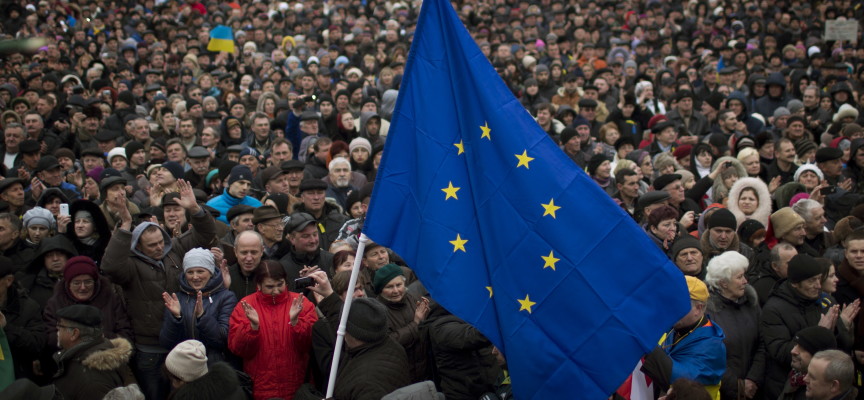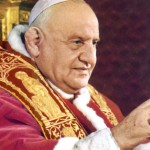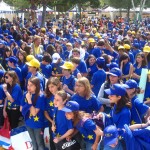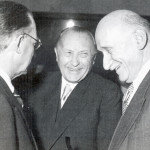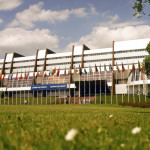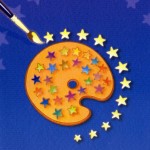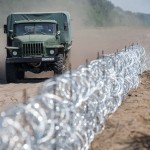The impression recently felt by the thinking world after listening to Pope Francis’ speech at the European Parliament on November 23rd is still very vivid.
Pope Francis’ urging, in Strasbourg, was to “have faith in the human being”, to “take care of fragility”, to “preserve memory and identity”, and “open up to the transcendent dimension of history”, “not to lose our souls”, to “keep democracy alive”, and “acknowledge the centrality of the human being” by means of the educational work of families and schools.
In the old continent, where “the inner sun of self-consciousness” (Hegel) had risen, where reason, in the Age of Enlightenment, had completed its ascending race, where the ideal of progress was supposed to make work more human, today we find unhappiness, anguish, a sense of relativity and of doubt. Everything lives below the human being. Even happiness has been replaced by pleasure.
The collapse of Europe is not only measurable in terms of the comparison between deficit and gross domestic product, but also by its inner weariness. Europe seems to be in agony even before its unity has been achieved.
Before Europe falls through, it is necessary to return to the human being, well-aware that all the wealth of the previous development can be preserved with a common commitment. The centrality of the human being tells the politicians from all sides that they need to work for his/her dignity, to widen his/her rights, first of all the right to work, to broaden the meaning of fraternity.
To proclaim values out loud is not enough anymore, it’s time to act, to start from the divided, lost, desperate human being in order to get to build, day after day, the new European human being, conscious of the common destiny of Europe, with a solid cultural identity and at the same time willing to be enriched with other people’s diversity, committed to protect the freedom obtained throughout the years, faithful to his/her history as the field for the communitarian realization of the human being, persuaded that borders are not hostile fences but places to cross in order to meet the faces of other people whom to share joys and sorrows, poverty and richness with. This is the challenge to face to give new impulse to a project that seems to have stopped.
We need to start again from the human being to “forget the idea of a scared Europe withdrawing into itself” and to find the remedies to neaten this economic disorder.
“Europe should contemplate the heavens in order to protect the human being”, said Pope Francis. With the eclipse of the sacred, European Christianity has been desacralized, but also dehumanized. Who can save the human being, if not the Churches?
Believers will ask their God not to reduce Faith to a pious devotionism, but to live in the struggle of the domestic, professional, social, cultural and political commitment as means to realize Europe. Non-believers and agnostics will join them to bring to completion a long and hesitating process of integration. Even critics and sceptics – if only provided with goodwill – could help build this European metamorphosis, but on one condition: that their localism, their defeatism and their Europhobia be not idealized as arrogant presumption.
Therefore we’re all called to give Europe this supplementary soul which won’t allow the dissolution of a thick agglomeration of peoples – each one of them with a different history and culture – but a rapprochement to the precious dream of a political, pluralist and democratic unity of Europe, a first step to lead the human family to a planetary reconciliation.
In the year when we remember the First World War, and with it all the wars that have followed one another within one century and have torn our continent to pieces with the utopias of nationalism, Nazism and Communism, it would be nice for Europe to find again the heroism of passion, of reason, of willpower because – as one of the greatest European poets wrote, Friederich Hölderlin – “where danger grows, there also grows what saves”.
È ancora vivissima l’impressione che il mondo pensante ha avuto ascoltando il discorso che papa Francesco ha rivolto al Parlamento Europeo lo scorso 23 novembre.
L’invito di papa Francesco a Strasburgo è stato di “avere fiducia nella persona”, “prendersi cura della fragilità”, “custodire la memoria e l’identità”, “aprirsi alla dimensione trascendente della storia”, “non perdere la propria anima”, “mantenere viva la democrazia”, “riconoscere la centralità della persona umana” attraverso l’opera educativa della famiglia e della scuola.
Nel vecchio continente dove si era alzato “il sole interiore della coscienza di sé” (Hegel), dove la ragione nel secolo dei lumi ha portato a compimento la sua corsa ascendente, dove l’ideale del progresso doveva rendere più umano il lavoro, oggi troviamo infelicità, angoscia, senso del relativo e del dubbio. Tutto vive al di sotto dell’uomo. Perfino la felicità è stata sostituita dal piacere.
Il crollo dell’Europa non si misura solo con il rapporto tra deficit e prodotto interno lordo, ma anche dalla sua stanchezza interiore. L’Europa sembra in agonia prima ancora che la sua unità si sia realizzata.
Prima che l’Europa naufraghi, è necessario ritornare alla persona, consapevoli che tutta la ricchezza dello sviluppo precedente può essere conservata in un impegno comune. La centralità dell’uomo indica ai politici di tutti gli schieramenti di lavorare per la sua dignità, per allargare i suoi diritti, primo fra tutti quello del lavoro, per dilatare il senso della fraternità.
Non basta più proclamare a voce valori, è ora di agire: partire dall’uomo parcellizzato, disperso, disperato per arrivare, giorno dopo giorno, a costruire il nuovo uomo europeo, cosciente del comune destino dell’Europa, saldo nella propria identità culturale e nello stesso tempo desideroso di arricchirsi delle diversità altrui, teso a salvaguardare le libertà conquistate negli anni, fedele alla storia come campo della realizzazione comunitaria della persona, persuaso che le frontiere non sono steccati ostili, ma luoghi da valicare per incontrare volti di altri uomini con cui condividere gioie e dolori, povertà e ricchezza. Questa è la sfida da affrontare per dare nuovo slancio a un progetto che sembra essersi fermato.
Dalla persona occorre ripartire per “abbandonare l’idea di un’Europa impaurita e ripiegata su se stessa” e per trovare i rimedi per porre ordine a questo disordine economico.
“L’Europa deve contemplare il Cielo per poter tutelare l’uomo”, ci ha detto papa Francesco. Con l’eclissi del sacro, la cristianità europea si è desacralizzata, ma anche disumanizzata. Il compito di salvare l’uomo, se non alle Chiese, a chi spetta?
I credenti chiederanno al loro Dio di non ridurre la Fede a un pio devozionismo, ma di vivere la fatica dell’impegno familiare, professionale, sociale, culturale e politico come mezzo per realizzare l’Europa. I non credenti e gli agnostici si uniranno a loro per portare a compimento un lungo e tentennante processo d’integrazione. Anche i critici e gli scettici – purché dotati di buona volontà – potranno essere costruttori di questa metamorfosi europea, a una condizione però: che il loro localismo, il loro disfattismo e la loro eurofobia non siano idealizzati da saccente presunzione.
Tutti siamo chiamati, dunque, a dare all’Europa questo supplemento d’anima che consentirà la risoluzione non di un fitto agglomerato di popoli – ciascuno diverso per storia e cultura – ma di un avvicinamento al caro sogno di un’unità politica, pluralista e democratica dell’Europa, prima tappa che conduca la famiglia umana alla riconciliazione planetaria.
Nell’anno in cui si ricorda la prima guerra mondiale – e con essa, tutte le guerre che si sono succedute in un secolo e che hanno dilaniato il nostro continente con le utopie del nazionalismo, del nazismo e del comunismo – sarebbe bello che l’Europa ritrovasse l’eroismo della passione, della ragione, della volontà perché – come ha scritto uno dei massimi poeti europei, Friederich Hölderlin, “là dove cresce il pericolo cresce anche ciò che salva”.
Edoardo Zin
Latest posts by Edoardo Zin (see all)
- 60° Treaties of Rome: a Europe that struggles and hopes - 19 marzo 2017
- Europe lacks the great politics - 28 dicembre 2016
- The strength of Robert Schuman - 30 aprile 2016

